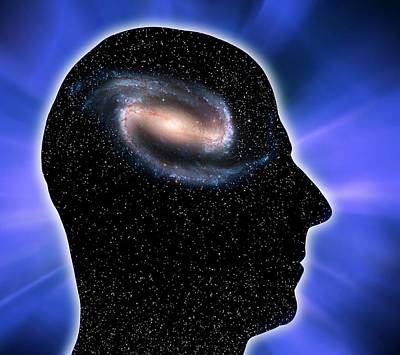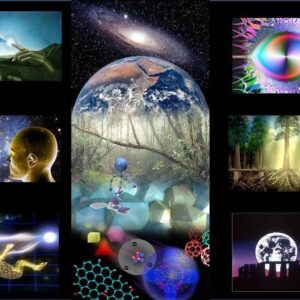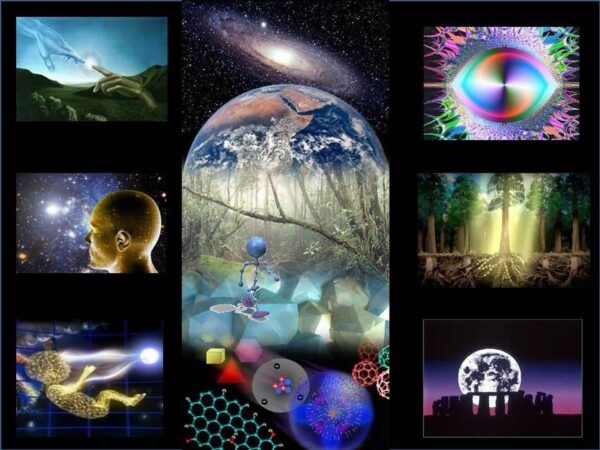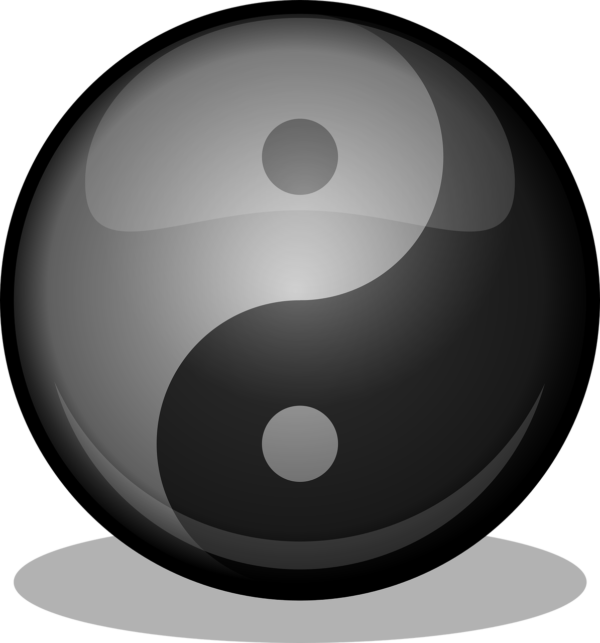The Universal Consciousness: Exploring the Depths of Our Connection to the Universe
Introduction
Universal Consciousness, also known as Cosmic Consciousness, is a state of awareness where one experiences a sense of connection to everything in the universe. It is a state where one feels a deep understanding of the interconnectivity of all things, and the inherent unity and oneness of the universe. This concept has been explored in various spiritual and philosophical traditions throughout history, and has recently gained popularity in the New Age and spiritual communities.
At its core, Universal Consciousness is the idea that everything in the universe is connected and interdependent. It is the understanding that every living being, every object, every thought and emotion, and every aspect of the natural world is an integral part of a larger whole. This interconnectedness extends beyond the physical realm, and includes the energetic and spiritual aspects of existence as well.
Universal Consciousness is often described as a state of enlightenment or awakening, where one transcends the limitations of the individual self and experiences a sense of unity with all things. It is a state of being that is characterized by feelings of peace, love, and compassion, and a deep understanding of the nature of reality.
In this blog post, I will explore the concept of Universal Consciousness in more detail, examining its origins, its significance in various spiritual traditions, and its relevance in modern society. We will also explore the practical implications of Universal Consciousness, and offer some guidance on how to cultivate this state of awareness in your own life.

The Concept of Universal Consciousness
The concept of Universal Consciousness is rooted in the idea that there is a single, interconnected consciousness that exists throughout the universe. It suggests that everything in the universe is not only interconnected but also an expression of this universal consciousness. This concept has been present in various cultures and traditions throughout history, including Hinduism, Buddhism, and modern spirituality.
In Hinduism, the concept of Universal Consciousness is referred to as Brahman. Brahman is considered the ultimate reality, beyond human comprehension, and the source of all existence. It is said that everything in the universe, including ourselves, is a manifestation of Brahman. In Buddhism, the concept is referred to as Buddha-nature, which is the inherent potential for enlightenment in all sentient beings.
In modern spirituality, the concept of Universal Consciousness is often referred to as the collective consciousness, which is the shared consciousness of humanity. It is believed that every thought, emotion, and action affects the collective consciousness, and that by raising our individual consciousness, we can positively influence the collective.
The idea of Universal Consciousness challenges the notion of separation and individuality. It suggests that our egos, beliefs, and identities are illusory and that we are all part of a greater whole. This concept can provide a sense of unity and interconnectedness, promoting compassion, empathy, and a sense of responsibility for the greater good.
Furthermore, the concept of Universal Consciousness suggests that we are all co-creators of our reality. Our thoughts, emotions, and actions contribute to the collective consciousness, which in turn shapes the world around us. By becoming aware of our thoughts and emotions, we can consciously choose to focus on positive and uplifting energies, thereby contributing to a more positive collective consciousness.
The concept of Universal Consciousness can also provide a sense of purpose and meaning in life. It suggests that we are not just individuals living our separate lives, but rather integral parts of a greater whole, contributing to the evolution and growth of the universe.
Overall, the concept of Universal Consciousness challenges us to expand our understanding of ourselves and the world around us. It suggests that we are all connected, and that by raising our individual consciousness, we can positively influence the collective consciousness and contribute to a more harmonious and peaceful world.

The Experience of Universal Consciousness
The experience of universal consciousness can be described in many different ways, but it often involves a deep sense of interconnectedness with all things. People who have experienced universal consciousness often report feeling a sense of oneness with the universe and a profound sense of love and compassion for all living beings.
One common experience reported by those who have experienced universal consciousness is a feeling of unity with all things. This can include a sense of being connected to the natural world, to other people, and even to the cosmos itself. Many people describe feeling a sense of awe and wonder when they experience universal consciousness, as they begin to perceive the incredible complexity and interconnectedness of the universe.
Another common aspect of universal consciousness is a profound sense of love and compassion for all living beings. People who experience universal consciousness often report feeling a deep sense of empathy for others, as they become more aware of the suffering that exists in the world. They may also feel a sense of responsibility to help alleviate this suffering, and may become more active in social or environmental causes as a result.

Finally, people who experience universal consciousness often describe feeling a sense of spiritual fulfillment and purpose. They may feel as though they have found their true calling in life, and may be more motivated to live a life of service to others. They may also feel a deep sense of inner peace and contentment, as they come to realize that they are part of something much larger than themselves.
Overall, the experience of universal consciousness can be a deeply transformative and life-changing one. While it may be difficult to put into words, it is something that can be experienced by anyone who is willing to open themselves up to it.
Cultivating Universal Consciousness
While universal consciousness may be something that comes naturally to some people, for many of us it takes time and effort to cultivate. Here are some tips for cultivating universal consciousness in your own life:
Practice mindfulness: Mindfulness meditation is a great way to cultivate universal consciousness, as it helps to quiet the mind and bring you into the present moment. By focusing on your breath and the sensations in your body, you can become more aware of the interconnectedness of all things.
Connect with nature: Spending time in nature can help you to feel more connected to the natural world, and can give you a sense of the incredible complexity and interconnectedness of the universe. Take a walk in the woods, go camping, or simply spend some time in your local park.
Practice compassion: By cultivating compassion for others, you can begin to feel more connected to all living beings. Practice acts of kindness and empathy towards others, and try to see the world from their perspective.
Study spiritual texts: Many spiritual texts, from the Bible to the Tao Te Ching, offer insights into the nature of universal consciousness. By studying these texts, you can gain a deeper understanding of the interconnectedness of all things.
Connect with others: By connecting with others who are on a similar spiritual path, you can find support and inspiration in your journey towards universal consciousness. Join a spiritual group, attend a retreat, or simply reach out to others who share your values.

Examples of Universal Consciousness in Different Spiritual Traditions
Universal Consciousness is a concept that can be found in various spiritual traditions around the world. Here are some examples of how it is understood and expressed in different contexts:
Hinduism: In Hinduism, Universal Consciousness is known as Brahman. It is considered to be the ultimate reality that underlies and permeates all things. Brahman is often described as unchanging, infinite, and eternal. The goal of spiritual practice in Hinduism is to realize one’s own identity as part of Brahman, and to merge with the universal consciousness.
Buddhism: In Buddhism, Universal Consciousness is sometimes referred to as “Buddha Nature.” It is the innate potential for awakening that is present in all beings. According to Buddhist teachings, every sentient being possesses this potential, but it is often obscured by ignorance and delusion. Through meditation and spiritual practice, one can develop insight into the true nature of reality and awaken to their Buddha Nature.
Taoism: In Taoism, Universal Consciousness is known as the Tao. It is considered to be the ultimate reality that underlies and connects all things. The Tao is often described as the source of all creation and the underlying force that governs the universe. The goal of spiritual practice in Taoism is to align oneself with the Tao and live in harmony with the natural world.
Indigenous Spirituality: Many indigenous spiritual traditions around the world have concepts of Universal Consciousness or a collective consciousness. For example, in some Native American traditions, the concept of the Great Spirit refers to a universal force that animates all living things. In African spirituality, there is the concept of Ubuntu, which emphasizes the interconnectedness and interdependence of all things.
New Age Spirituality: In New Age spirituality, Universal Consciousness is often referred to as the “Divine Mind” or the “Cosmic Consciousness.” It is considered to be the underlying intelligence and energy that permeates all things in the universe. The goal of spiritual practice in this context is to align oneself with this universal consciousness and to tap into its power and wisdom.

How to Connect with Universal Consciousness
Practices to Connect with Universal Consciousness
Meditation
Mindfulness
Nature Connection
Energy Work
Creative Expression
Benefits of Connecting with Universal Consciousness
Increased Self-Awareness
Enhanced Intuition
Deeper Understanding of Life’s Purpose
Greater Connection to Others and the World Around Us
Connecting with Universal Consciousness can be a deeply transformative and life-changing experience
Universal Consciousness is the idea that all beings and things in the universe are interconnected and part of a greater whole. It is a concept that has been present in various spiritual and philosophical traditions for thousands of years. Understanding Universal Consciousness can bring about a profound shift in our perspective and way of living, as it allows us to see ourselves as part of a larger web of life and to act with greater compassion and empathy towards others and the world around us.
Through practices such as meditation, mindfulness, and spiritual inquiry, we can cultivate a greater awareness and understanding of Universal Consciousness. By tuning into this cosmic awareness, we can tap into a source of inner wisdom and guidance that can help us navigate life’s challenges and live more fulfilling, purposeful lives. Ultimately, the realization of Universal Consciousness is a journey of self-discovery, transformation, and awakening that can lead to greater peace, joy, and fulfillment in our lives.



